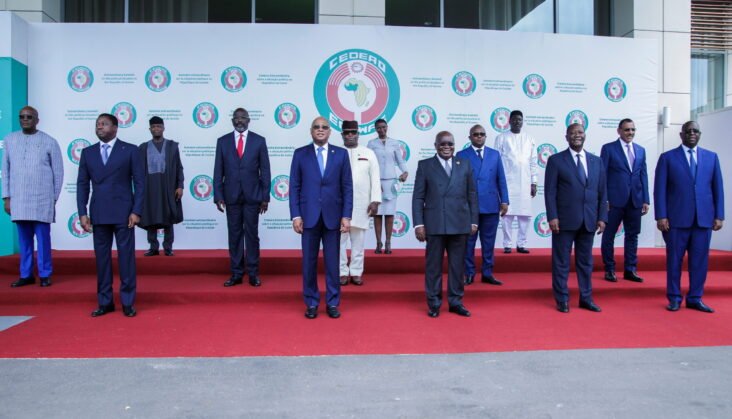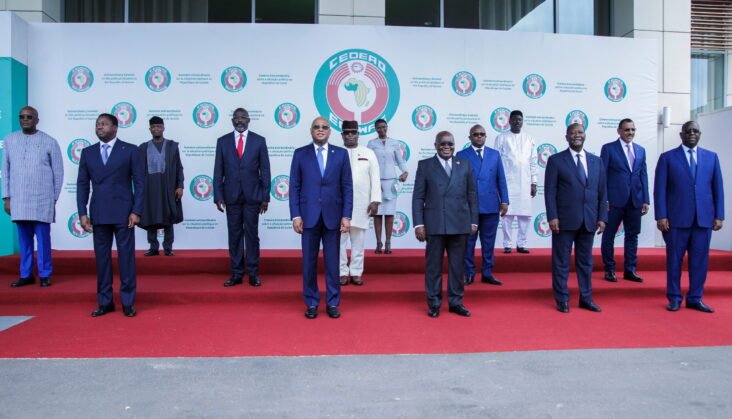By Nina Kozlowski
“Morocco is not in a hurry,” officials often say. But four years after the country applied to join the Economic Community of West African States (ECOWAS), it still has not had an answer.
“There is a real silence, no information is circulating on this project. Morocco has been scalded by the negative reactions of some stakeholders within ECOWAS. Nevertheless, bilateral discussions are still underway,” says economist Larabi Jaïdi, a senior fellow at the Policy Center for the New South.
The day after Morocco applied for membership, ECOWAS gave its “agreement in principle”, before discreetly freezing the process. Under pressure from the private sector in their countries, some policymakers have expressed concerns about Moroccan competition, and have launched debates about culture and identity.
Nigeria’s AfCFTA u-turn
This has been the case in Senegal, Ghana and especially Nigeria, which accounts for 40% of regional trade. Having the most to lose, Nigeria had shown reservations about Morocco’s membership and, indeed, about any opening of ECOWAS to another country. But its u-turn on the African Continental Free Trade Area (AfCFTA) in 2019 has changed the atmosphere.
“Morocco’s integration into ECOWAS and the development of AfCFTA represent processes that are much more complex than simple trade liberalisation,” says Jaïdi. For the time being, 35 African states out of 55 have ratified the AfCFTA agreement. The AfCFTA is still laying its technical and institutional foundations – structural changes that could take decades.

Despite its diplomatic strategy and dozens of agreements signed with African countries, Morocco remains poorly integrated into the continent. Less than 4% of its trade is intra-African, according to the Conseil Economique Social et Environnemental. However, as the Brookings Institute recently pointed out, the statistics can be skewed by the weight of resource exports and the lack of information on the informal economy. UNCTAD puts Nigerian intra-African trade at only 7%.
Diplomatic rupture
Morocco already belongs to the Arab Maghreb Union and the Community of Sahel-Saharan States. The recent break in diplomatic relations between Algeria and Morocco will not help: “The potential of the regional value chain (gas, phosphates, automobiles, etc.) will not be exploited to create a Maghrebian industrial fabric capable of integrating into the continent,” says Jaïdi.
In the end, it is an interlinked challenge: AfCFTA can accelerate the process of Morocco’s accession to ECOWAS, but, to take advantage of this trade area, its economy should be better integrated on a regional scale. Meanwhile, Moroccan operators are calling for an African strategy in all of Morocco’s business plans, and a repositioning of the value chains into West Africa, notably for the automobile and textile industries.
Credit | The Africa Report

